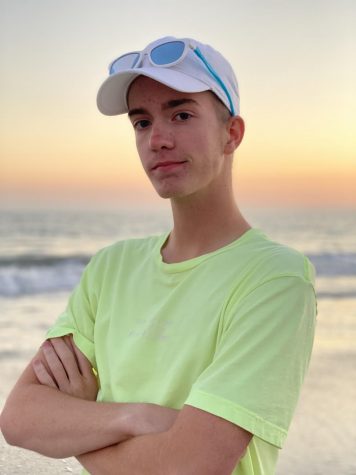Open-mindedness about gender identities leads to respect
February 3, 2021
I want to preface this piece by stating that I am a cisgender, white male who has no experience with discrimination due to race or gender.
Identity is a long-explored curiosity of the human condition. In the recent years, labels, stereotypes, and norms associated with identity as a human have been changing. Although we have made progress as a society in reducing discrimination of minorities, new forms of identity, and thus new minorities and instances of discrimination, have arisen.
Gender identity is, admittedly, something I had never considered to be anything other than binary. I grew up understanding that there were men and women, each of which had biological differences which allowed them to be classified in that way. I learned that women had been traditionally less powerful and had fought hard for equality, and that the traditional mold of being masculine was also changing. I consider myself lucky to be growing up in this time, because although many changes occurred as I was growing up, the opportunity to learn about them has been a powerful one.
So, with all of these roles changing, I began to learn about non-straight culture, the fight for equality in the realm of sexual preference, and that, yet again, people were different from me and that was okay. Despite knowing that these differences existed, I never fully grasped them until high school, where I met my first openly gay friend. At the time, I admit that it took time to accept that person’s identity and fully grasp that they were different from me, but ultimately that their difference made them no less human than me.
More recently, there has been change around different people’s preferred gender pronouns. For example, because I associate with being a male and believe that my psyche matches that, I go by he/him. These changes in preferences, from what I understand, originated with transgender people or those with gender dysphoria who needed to change how they viewed themselves in order to be happy.
Admittedly, this new topic was confusing at first; I genuinely couldn’t understand how someone was not the gender they were born as, or how someone could claim to have no association to gender at all. (And in many cases, media outlets didn’t understand either, and thus sparked outrage over discrimination.) And yet, the same friend I mentioned from earlier, when exploring their identity, realized that they did not associate with being male or female. Again, like before, the seemingly far-fetched subject became personal. When I look at how I began understanding this concept, it really did start with asking questions. If I didn’t understand, I just had to ask, which was never considered offensive and which helped me ultimately understand other perspectives. Beyond just being curious though, I had to work on changing my own habits. If this person wanted to be referred to as they/them, then it was my responsibility to respect that part of them and call them by those pronouns.
Ultimately, this wasn’t an easy journey to instantly accepting this new and confusing idea. It took a lot of questions, a lot of misunderstandings, and a lot of effort. To be honest, I may never understand. But that does not mean I shouldn’t respect the identities of those who do. There are those who argue that calling someone anything other than their birth gender is wrong or too difficult, but when someone asks you to call them by a certain nickname, you generally do, and it takes little effort.
My challenge to you is to respect the ideas and identities of those around you, even if they are not the same as yours. Push yourself to understand, and if that isn’t possible, at least try to be more open-minded and accepting. New concepts can be challenging to understand, but if someone trusts you to be a good friend or respectful acquaintance, then please, be that person.
Although I may be straight and male, I had a unique journey in understanding the lives of those who are not like me, and just because I have not changed my identity because they changed theirs does not mean I didn’t learn. New perspectives are the best things that friends can offer us, and if we embrace those people and their ideas, then those relationships will be stronger and our mutual exploration of being human easier to navigate.



